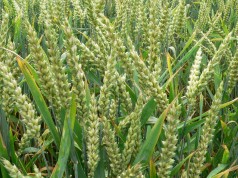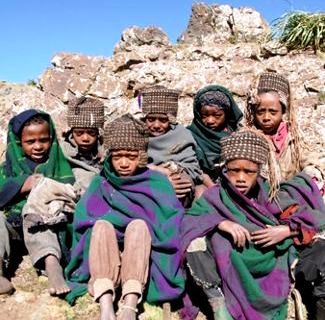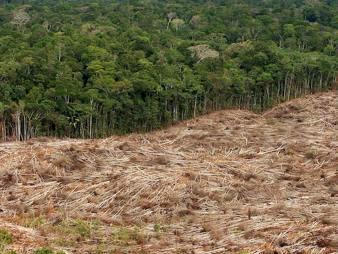Tbilisi, Georgia – “It is often said that you can’t manage what you don’t measure. The same principle can apply for a country’s natural capital,” said Pavan Sukhdev, Chair, TEEB Advisory Board and UNEP Goodwill Ambassador, at the launch of the Economics of Ecosystems and Biodiversity (TEEB) Scoping Study for Georgia taking place in Tbilisi.
Georgia is one of the pilot countries that has volunteered to assess its natural capital with the ultimate objective of valuing it, including non-monetary values, and the services provided by the country’s ecosystems. “Bringing the wealth of the natural world to the attention of decision-makers will pave the way to better informed choices and policies for all Georgians,” added Sukhdev.

The TEEB Scoping Study for Georgia – a joint effort of the Georgian Ministry of Environment and Natural Resources Protection, UN Environment Programme (UNEP) and WWF-Caucasus – is an important step forward in valuing ecosystems and biodiversity. Identifying five core sectors of Georgian economy – Energy, Tourism, Agriculture, Mining, and Forestry – the study highlights their substantial dependence on natural capital and related services; hence, showing the importance of healthy ecosystems beyond environmental concerns.
Speaking at the launch, Khatuna Gogaladze, Minister of Environment and Natural Resources Proctection of Georgia said, “Considering the transitional phase and rapid development in Georgia’s economy, the TEEB initiative is an effective instrument to help conserve ecosystems while promoting sustainable growth of the economic sector.”
Georgia’s agriculture sector, for example, employs 53 per cent of the workforce and has been identified by the Government as a main vehicle for rural development. The sector’s long-term sustainability, however, faces challenges associated with the reduction of genetic diversity, land degradation due to salinization and soil erosion. Long-term crop yields are at risk if incentives are not provided to promote, for example, limited pesticide and chemical fertilizer use, biological pest control, soil conservation techniques, water use efficiency, food safety, crop rotation, and farm diversification.
Therefore, this first scoping exercise recommends the development of TEEB for Agriculture, a sectoral examination that addresses agricultural policies in Georgia to ensure food security, improve agricultural biodiversity, reduce the extent of land degradation, and, ultimately, maintain agriculture as a strong sector for the country and its workforce.
“Once again we confirm the importance and need to strengthen the links between development and environment,” said Yolanda Kakabadse, President of WWF International and Member of the TEEB Advisory Board. “Indeed, as this preliminary TEEB scoping study shows, nature plays a vital role in sustaining Georgia’s important economic sectors and policy priorities. For example, with its abundance of rivers and varying terrain, the hydropower sector has immense potential for not only meeting domestic energy needs but also export. The sector, however, depends on both quality and quantity of freshwater, guaranteed by forests upstream; this is another call for better protected ecosystems that would benefit us all,” she concluded.
Addressing the audience in Tbilisi, Jan Dusik, Acting Director and Regional Representative for UNEP in Europe, said, “UNEP is proud to host The Economics of Ecosystems and Biodiversity (TEEB) initiative, which has brought the multiple values, including the non-monetary values, of the globe’s ecosystems and their services from the invisible into the visible spectrum of economic and developmental discourse. Not because the economics of nature are nature’s only relevance to humanity; but in a world where the ups and downs of GDP currently define much of policy-making, informing decision-makers by increasing the evidence base for countries to account for their natural assets in policy formulation may lead to more sustainable development and greener economies.”
The ‘TEEB Georgia: Scoping Study’ is a preliminary study that sets the stage for undertaking a full TEEB study for Georgia that would provide decision-makers with data and recommendations on questions that the scoping study identifies. The recommendations would cover a large spectrum, including public policies for subsidy reform, land use management, protected area management, investment in natural infrastructure restoration, and national accounting to include natural capital.
Check the following link to read/download the Full Report:
www.teebweb.org/publication/teeb-scoping-study-for-georgia-main-findings-and-way-forward/
Source: UNEP.


















